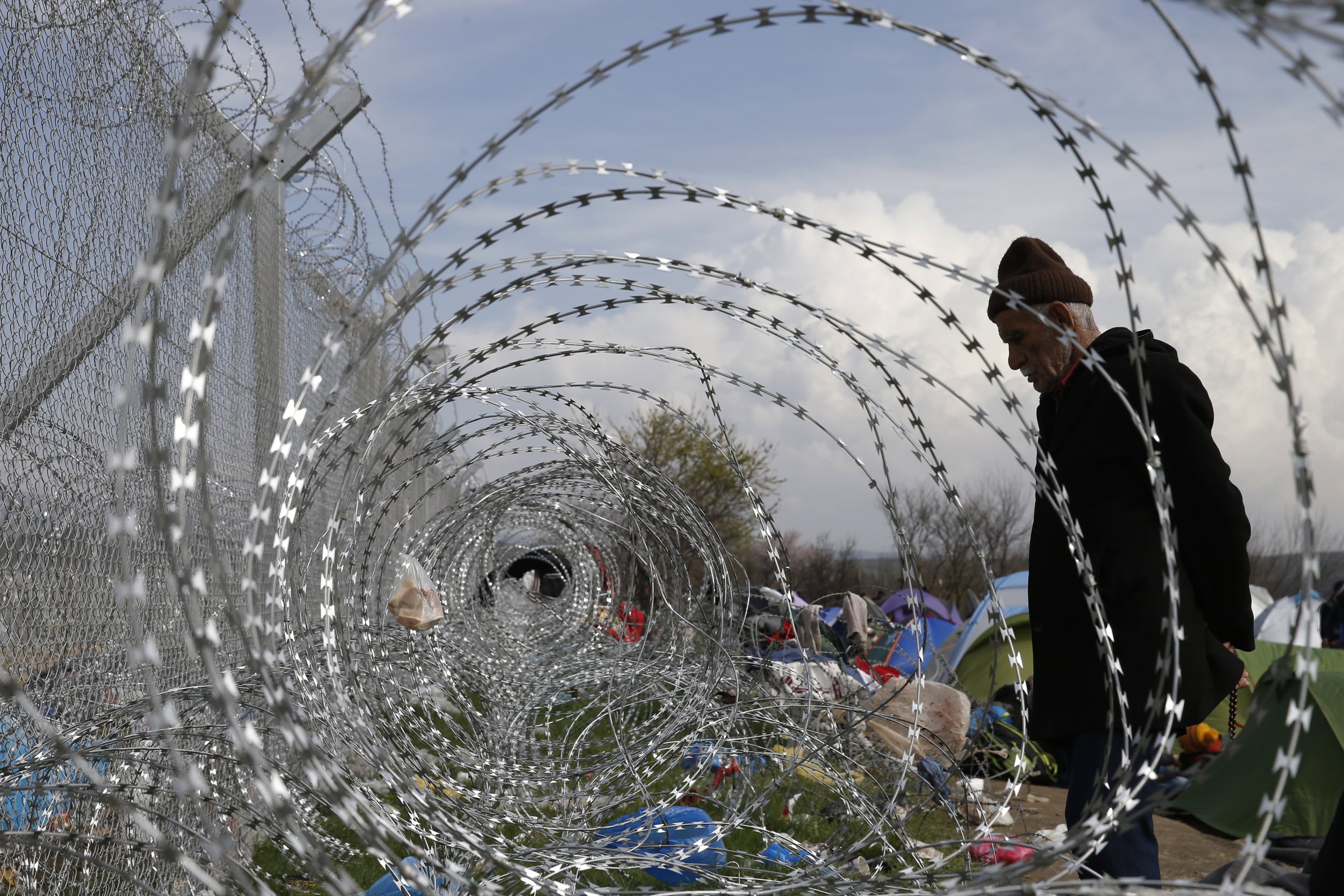
On 5 March 1946, in a small college gym in Missouri, Winston Churchill warned about Europe: "From Stettin in the Baltic to Trieste in the Adriatic, an Iron Curtain has descended across the continent."
Seventy years after Churchill gave that speech, a new Iron Curtain is descending across Europe, made of razor wire and of failed asylum policies. It can be seen at Spanish enclaves Ceuta and Melilla in the Mediterranean and at Idomeni in northern Greece, where this week Macedonian riot police tear-gassed families of refugees trying to cross the border between the two countries.
he old Iron Curtain kept people in, the new one keeps people out. EU member states have built more than 235 kilometers of fences at the EU's external borders: between Hungary and Serbia, Greece and Turkey, Bulgaria and Turkey, and, this week, Austria and Slovenia. Neighbors such as Turkey have become Europe's border guards, pushing migrants and refugees back, sometimes even shooting them.
With almost all land borders of Europe sealed off, more than a million refugees and migrants arriving in Europe in 2015 risked death coming by sea. More than 3,770 people died trying to cross the Mediterranean in 2015, and another 410 have already perished this year. They are direct victims of Europe's new Iron Curtain and what it represents: Fortress Europe. By contrast, 138 people died trying to cross the Berlin Wall in the entire 28 years of its existence.
For those who do survive the crossing, the plight is far from over, often having to walk for days, traveling through numerous countries, sleeping rough in the cold, before being able to seek safety in a country with a functioning asylum system.
Amnesty International has spoken to refugees fleeing war and persecution in Afghanistan, Eritrea, Iraq and Syria. They would rather not have left their homes, but most had to flee for their lives. As a man from Afghanistan, sitting in Victoria Square in Athens with his pregnant wife, told us: "My family was threatened by the Taliban. My wife is eight-months pregnant... We have no choice here... we do not know what will happen next."
That is why Europe's new Iron Curtain is as misguided and unlikely to succeed as the old one. As long as there is violence and war, people will continue to come. It may seem a strong, hard-line response for politicians to close borders, but it is actually naive and short-sighted.
To be sure, the numbers of arrivals are high. But despite politicians' rhetoric about "swarms," Europe is actually shirking its global responsibility, undermining the Refugee Convention and leaving poorer countries to bear the brunt of the refugee crisis. In reality, 85 percent of the world's 20 million refugees live in developing countries.
Governments out of touch with many of their own people who want to make refugees welcome have played to the politics of fear. They talk of "defending" borders even as we see images of entire families of all ages, from babies to the elderly, on Europe's shores.
As with the old Iron Curtain, today's fences are a sign of failed policies. This is creating a humanitarian crisis in Greece right now. While there are no structural solutions imminent, Europe is pressing Balkan countries to shut down that route. Balkan countries are either closing borders entirely or only opening them only for Syrians and Iraqis. With the system for relocating refugees from Greece to other EU countries barely functional, the country is fast becoming a trap, leaving tens of thousands of refugees stranded in desperate conditions without any information on what will happen next.
We need an immediate, fundamental shift in Europe's approach to prevent another year of deaths at sea, desperation in Greece and violence at borders. First, drop the pretence that spending billions on fences and border guards will stop people fleeing war and persecution.
Second, share the responsibility and commit to resettling Europe's share of the million-plus extremely vulnerable refugees who urgently need it. Open other safe and legal routes that allow refugees to find protection.
Third, get the promised relocation system off the ground so that people who make it to Greece can be moved to other countries quickly, efficiently and with dignity.
Europe doesn't have a choice between refugees coming to Europe or not. The choice is between chaos and order. As Angela Merkel said this week — it is our "damn duty." Or, as Churchill said in Missouri: "Our difficulties and dangers will not be removed by closing our eyes to them."
Gauri van Gulik is Deputy Director for Europe & Central Asia at Amnesty International. She can be found tweeting at @gaurivangulik.
Uncommon Knowledge
Newsweek is committed to challenging conventional wisdom and finding connections in the search for common ground.
Newsweek is committed to challenging conventional wisdom and finding connections in the search for common ground.
About the writer
To read how Newsweek uses AI as a newsroom tool, Click here.








